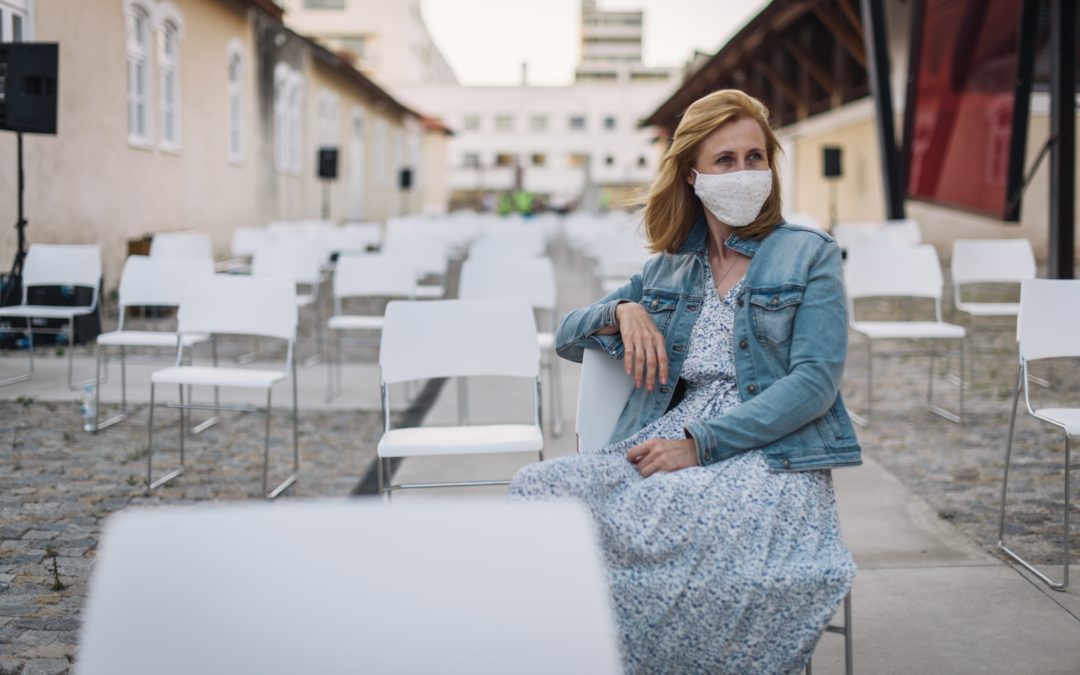From the Philadelphia Gay News
by M. Agustina Menendez
Hospitalizations and mortality due to COVID-19 are descending and reaching the lowest point of the curve since the beginning of the pandemic. The weather is nice, the flowers are in bloom, and there is green everywhere. It is like the world is calling us: “Come outside!” But leaving the house may seem like an almost impossible task – or at least an undesirable one. You are not alone in feeling this way. Many are struggling to get “back to normal” after two-plus years of living through a pandemic.
“I haven’t walked to the grocery store for almost two years. I’m not sure I’m capable anymore” an 82-year-old participant of a senior group told me. Throughout the pandemic, she relied on her family to do all the outside activities for her. She never got COVID, so in that sense the strategy worked, but now she doesn’t feel comfortable going out anywhere on her own.
A man in his seventies who participates in a local social group for LGBT seniors shared that “Everything I did on a daily basis two years ago seems to be very difficult now, especially when it involves leaving my home.” These are only two examples of an issue that is under the radar: the difficulty of resuming the activities that used to be our routine.
If you are suffering from an illness or your immune system is compromised, please stay home and don’t risk it. But if you are someone who would like to start getting back to your pre-pandemic routines and activities, there are steps you can take to address the physical and mental challenges that may accompany this transition. Humans are creatures of habit, and we can easily get used to the most extreme circumstances. Yet just because we get used to these difficult contexts doesn’t mean that it is what we desire for our lives.
A good way to start getting back out is to go somewhere that you love or do something that gives you pleasure. Visit a friend, stroll around your favorite park, browse in that cute store that you always used to visit. We are more likely to do something difficult when we are motivated by the task. So, if you are just starting to go out more often, don’t make it more difficult for yourself. Choose places that you are drawn to, such as your favorite senior center, faith group, or neighborhood organization. Consider resuming your volunteer activities or reconnecting with community groups with whom you used to participate.
This is also a time to tap into your support networks if going out alone feels overwhelming or if you won’t feel safe. Call someone you trust and let them know your concerns and see if they can accompany you in your outings and activities.
If your main concern is that you are not as capable of doing things on your own as you were two-and-a-half years ago, there may be a health concern that needs to be addressed. Perhaps your eyesight has declined or your legs don’t feel as stable as they once did. It is likely time to make that appointment with the doctor that you have been procrastinating doing. And once your health concerns are resolved, you should feel more secure getting back out in the community.
Finally, if the thought of leaving home right now is frightening or gives you extreme anxiety, it may be a good time to consult with a mental health service. There is nothing to be ashamed of — according to the World Health Organization, the pandemic triggered a 25% increase in prevalence of anxiety and depression worldwide. If you have the resources to schedule an appointment with a therapist, talk therapy can be very beneficial. Your healthcare provider can likely make a referral. The William Way Community Center also offers free peer counseling (215.732.8255) that can provide support. Healthy Minds Philly has a line for emergencies that you can call in case of a crisis (215.685.6440) and another line in case you just need someone to talk to (267.687.4381, Option 1).
The past two years have been really hard. There is no one right way for each of us to get back to “normal.” Some people cope better if they act as if nothing happened. Others are much more cautious in resuming their routines. The priority is that you are finding ways of slowly recovering the kind of life you want to live.
M. Agustina Menendez is a Buenos Aires, Argentina based clinical psychologist and gerontologist who loves Philadelphia, musicals, and Tavern on Camac. She is currently completing an internship at the Elder Initiative at the William Way LGBT Community Center.

